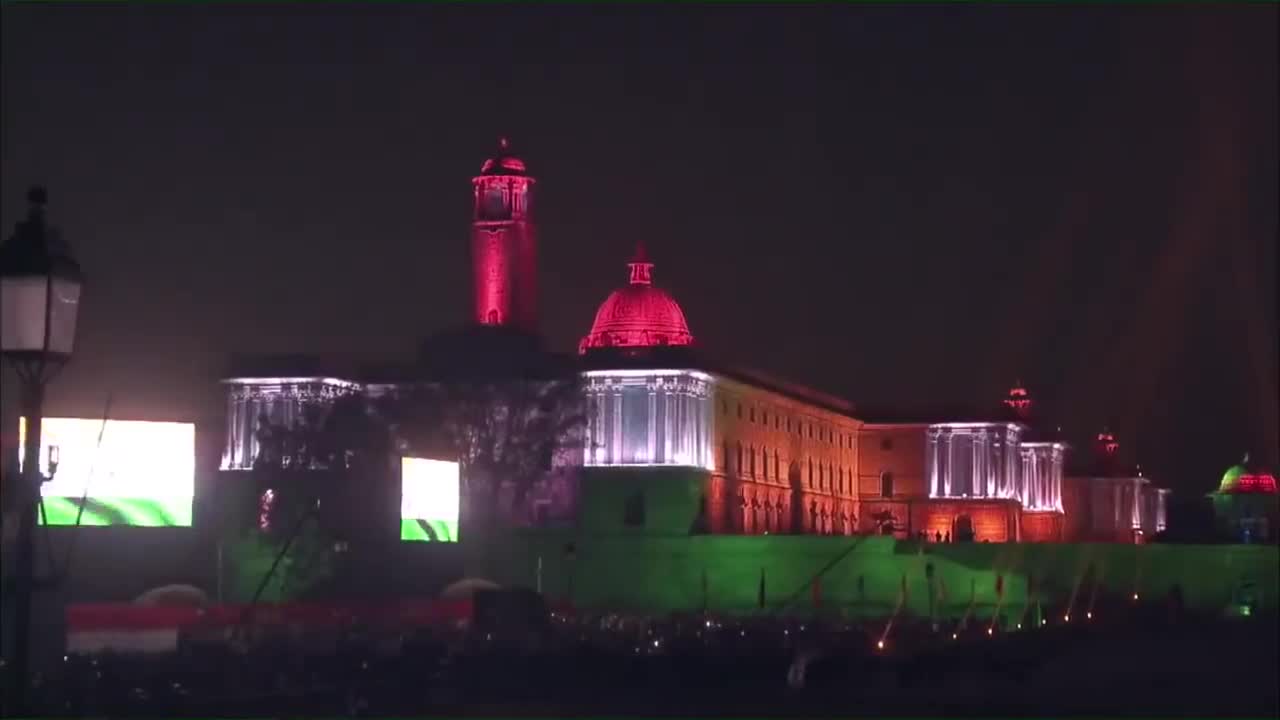Premium Only Content

Beating Retreat ceremony: Dazzling drones light up the sky!
Beating Retreat is a military ceremony dating to 17th-century England and was first used to recall nearby patrolling units to their castle.
Originally it was known as watch setting and was initiated at sunset by the firing of a single round from the evening gun.
An order from the army of James II (England), otherwise James VII of Scotland dated to 18 June 1690 had his drums beating an order for his troops to retreat and a later order, from William III in 1694 read "The Drum Major and Drummers of the Regiment which gives a Captain of the Main Guard are to beat the Retreat through the large street, or as may be ordered. They are to be answered by all the Drummers of the guards, and by four Drummers of each Regiment in their respective Quarters". However, either or both orders may refer to the ceremonial tattoo.
Beating retreat in India officially denotes the end of Republic Day festivities. It is conducted on the evening of 29 January, the third day after the Republic Day and is organized by Section D of the Ministry of Defence.[6] It is performed by the bands of the three wings of the military, the Indian Army, Indian Navy and Indian Air Force, and pipe bands from the Army, plus from 2016 a massed formation of bands of the Central Armed Police Forces and the Delhi Police. The venue is Raisina Hills and an adjacent square, Vijay Chowk, flanked by the North and South blocks of the Central Secretariat and the Rashtrapati Bhavan (President's Palace) towards the end of Rajpath.
The ceremony was started in 1955 and has been a hallmark of Republic Day celebrations ever since. Brig Bewoor and Maj Roberts of Ceremonial and Welfare Directorate of Indian Army conceived the first Beating Retreat in India. Army, Air Force and Navy bands consisting of pipes, drums, buglers and trumpeters from various regiments took part. It has become an official ceremony to have a Head of State of a country as the chief guest and that year the Beating Retreat was in their honour.
-
 1:45:26
1:45:26
Kim Iversen
13 hours agoBANNED for Telling the Truth: The 9/11 and Epstein Plot They Don't Want You To Hear
141K233 -
 1:08:47
1:08:47
Man in America
16 hours agoDr. Makis EXPOSES Big Pharma’s SICK Vaccine Scam—RFK Jr. Must Act NOW!
113K40 -
 1:28:21
1:28:21
Glenn Greenwald
14 hours agoRFK Jr. Hearing Reveals DC Pro-Pharma Consensus; Trump's Executive Order to Deport Student Protesters Criticizing Israel; Untangling DC Think Tank Funding & Influence | SYSTEM UPDATE #399
158K177 -
 1:23:44
1:23:44
Space Ice
14 hours agoSpace Ice & Redeye: Van Damme's The Quest: Pirates, Clowns, James Bond & Bloodsport
52.4K3 -
 59:57
59:57
The StoneZONE with Roger Stone
12 hours agoJ6 Martyr Enrique Tarrio Describes Inhumane Prison Conditions Ordered by Biden | The StoneZONE
50.6K4 -
 16:48
16:48
Tundra Tactical
12 hours ago $11.42 earnedAffordable Medical Gear From ACETAC SHOT Show 2025
98.3K5 -
 1:46:16
1:46:16
Redacted News
15 hours agoRFK CONFIRMATION: Kennedy goes to WAR with Big Pharma Democrats in Fiery Hearing | Redacted Live
273K443 -
 57:31
57:31
Candace Show Podcast
15 hours agoBREAKING! Taylor Swift Turns Against Blake Lively & Ryan Reynolds | Candace Ep 141
247K180 -
 1:04:59
1:04:59
Sarah Westall
12 hours agoRFK Jr Report, Constitution Suspended, War Time Procedures in Place, WHO Exit, DOD w/ Sasha Latypova
85.1K50 -
 1:56:37
1:56:37
Melonie Mac
16 hours agoGo Boom Live Ep 35!
72.3K16